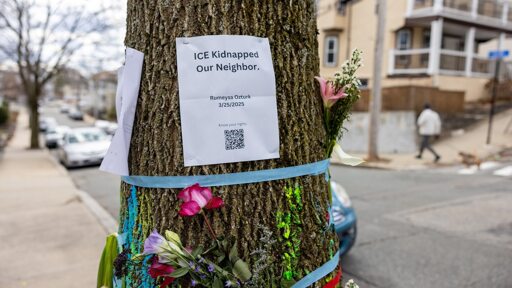Arthur Besse
cultural reviewer and dabbler in stylistic premonitions
- 1.05K Posts
- 1.6K Comments

 3·6 days ago
3·6 days agoDo tech journalists at the New York Times have any idea what they’re talking about? (spoiler)
'We’re going to talk about these stories.'
The author of this latest advertorial, Kevin Roose, has a podcast called “Hard Fork”.
Here he and his co-host attempt to answer the question “What’s a Hard Fork?”:
kevin roose: Casey, we should probably explain why our podcast is called “Hard Fork.”
casey newton: Oh, yeah. So our other names didn’t get approved by “The New York Times” lawyers.
kevin roose: True.
casey newton: And B, it’s actually a good name for what we’re going to be talking about. A “hard fork” is a programming term for when you’re building something, but it gets really screwed up. So you take the entire thing, break it, and start over.
kevin roose: Right.
casey newton: And that’s a little bit what it feels like right now in the tech industry. These companies that you and I have been writing about for the past decade, like Facebook, and Google, and Amazon, they’re all kind of struggling to stay relevant.
kevin roose: Yeah. We’ve noticed a lot of the energy and money in Silicon Valley is shifting to totally new ideas — crypto, the metaverse, AI. It feels like a real turning point when the old things are going away and interesting new ones are coming in to replace them.
casey newton: And all this is happening so fast, and some of it’s so strange. I just feel like I’m texting you constantly, “What is happening? What is this story? Explain this to me. Talk with me about this, because I feel like I’m going insane.”
kevin roose: And so we’re going to try to help each other feel a little bit less insane. We’re going to talk about these stories. We’re going to bring in other journalists, newsmakers, whoever else is involved in building this future, to explain to us what’s changing and why it all matters.
casey newton: So listen to Hard Fork. It comes out every Friday starting October 7.
kevin roose: Wherever you get your podcasts.
This is simply not accurate.
Today the term “hard fork” is probably most often used to refer to blockchain forks, which I assume is where these guys (almost) learned it, but the blockchain people borrowed the term from forks in software development.
In both cases it means to diverge in such a way that re-converging is not expected. In neither case does it mean anything is screwed up, nor does it mean anything about starting over.
These people who’s job it is to cover technology at one of the most respected newspapers in the United States are actually so clueless that they have an entirely wrong definition for the phrase which they chose to be the title of their podcast.
“Talk with me about this, because I feel like I’m going insane.”
But, who cares, right? “Hard fork” sounds cool and the times is ON IT.
I started to python one and half week ago. So I’m still beginner.
Nice work! Here are a few notes:
The
WeatherAppobject has a mix of attributes with long-term (egself.LOCATIONS) and short-term (egself.city) relevance. Instance attributes introduced in places other than__init__, which makes it non-trivial for a reader to quickly understand what the object contains. And, actually,self.{city,lat,lon}are all only used from theadd_citymethod so they could/should be local variables instead of instance attributes (just remove theself.from them).There seem to maybe be some bugs around when things are lowercase and when not; for example checking
if self.city.lower() in self.LOCATIONSbut then when writing there the non-lowerself.ctiyis used as the key toself.LOCATIONS.The code under
if rep == "1"andelif rep == "2"is mostly duplicated, and there is noelsebranch to cover ifrepis something other than 1 or 2.It looks like the config only persists favorites so far (and not non-favorite cities which the user can add) which isn’t obvious from the user interface.
Passing both
locationandlocationsintoWeatherAPIso that it can look uplocations[location]is unnecessary; it would be clearer to pass in the dict for the specific location. It would also be possible to avoid the need forLOWLOCATIONSby adding a non-lowercasenamekey to the per-location dictionaries that just havelatandlonright now, and then keepingLOCATIONSkeyed by the lowercase names.HTH! happy hacking :)

 5·6 days ago
5·6 days agoyou linked to a slop video
only while the wearer is tilting their head back as far as they can

 31·6 days ago
31·6 days agoWhy memorize a different command? I assume sudoedit just looks up the system’s EDITOR environment variable and uses that. Is there any other benefit?
I don’t use it, but,
sudoeditis a little more complicated than that.details
from
man sudo:When invoked as sudoedit, the -e option (described below), is implied.-e, --edit Edit one or more files instead of running a command. In lieu of a path name, the string "sudoedit" is used when consulting the security policy. If the user is authorized by the policy, the following steps are taken: 1. Temporary copies are made of the files to be edited with the owner set to the invoking user. 2. The editor specified by the policy is run to edit the tem‐ porary files. The sudoers policy uses the SUDO_EDITOR, VISUAL and EDITOR environment variables (in that order). If none of SUDO_EDITOR, VISUAL or EDITOR are set, the first program listed in the editor sudoers(5) option is used. 3. If they have been modified, the temporary files are copied back to their original location and the temporary versions are removed. To help prevent the editing of unauthorized files, the follow‐ ing restrictions are enforced unless explicitly allowed by the security policy: • Symbolic links may not be edited (version 1.8.15 and higher). • Symbolic links along the path to be edited are not followed when the parent directory is writable by the invoking user unless that user is root (version 1.8.16 and higher). • Files located in a directory that is writable by the invok‐ ing user may not be edited unless that user is root (ver‐ sion 1.8.16 and higher). Users are never allowed to edit device special files. If the specified file does not exist, it will be created. Un‐ like most commands run by sudo, the editor is run with the in‐ voking user's environment unmodified. If the temporary file becomes empty after editing, the user will be prompted before it is installed. If, for some reason, sudo is unable to update a file with its edited version, the user will receive a warning and the edited copy will remain in a temporary file.tldr: it makes a copy of the file-to-be-edited in a temp directory, owned by you, and then runs your
$EDITORas your normal user (so, with your normal editor config)note that sudo also includes a similar command which is specifically for editing
/etc/sudoers, calledvisudo🤪

The Unicode Consortium specifies only three types of faces with hats and one of them usually does not even include a hat: every design of “disguised face” has groucho glasses but only the Huawei HarmonyOS emoji set adds a hat to it:

The primary purpose of those buttons is of course to let those sites track everyone’s browsing activity across every site that uses them, which does not require that anyone ever click on them.
Even if less than 0.0001% of people click them, anyone with an SEO/spammer “grindset” will assure site operators that the potential benefit of someone sharing a link they otherwise wouldn’t have is still at least theoretically non-zero. And, since there is absolutely no cost at all besides an acceptable number of extra milliseconds per pageload, really, it would be downright irresponsible not to have them there!

 1·8 days ago
1·8 days ago
By “solar power in operation” (in GW) i think they mean maximum output capacity rather than actual production, since these numbers add up to 923 GW while wikipedia says in 2024 there was 2.13 petawatt-hours (243 GW on average) actually produced by solar.


 4·8 days ago
4·8 days ago
By “solar power in operation” (in GW) i think they mean maximum output capacity rather than actual production, since these numbers add up to 923 GW while wikipedia says in 2024 there was 2.13 petawatt-hours (243 GW on average) actually produced by solar.


 121·9 days ago
121·9 days agoThese articles were stolen, by the paywall operators. Elbakyan rescued them from the thieves. 🎉
As more data becomes available
Then we can start doing more with it
And as we do more with it
That that creates more data
what do you mean you haven’t installed it yet, just
curl | sudo bashwhat’s your problem
encryption would prevent the modem from seeing it when someone sends it, but such a short string will inevitably appear once in a while in ciphertext too. so, it would actually make it disconnect at random times instead :)
(edit: actually at seven bytes i guess it would only occur once in every 72PB on average…)

 1·11 days ago
1·11 days agoAs more data becomes available
Then we can start doing more with it
And as we do more with it
That that creates more data







































because it’s obscene